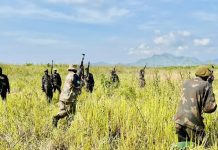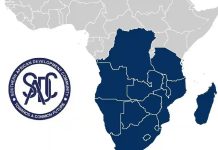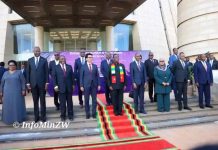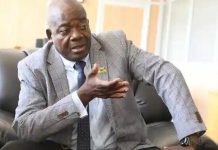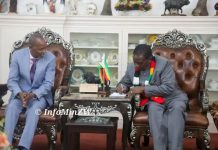ONE of the most interesting developments in the recent budget statement is government’s decision to compensate former white farmers after nearly 20 years following the 2000 land reform programme. The former farmers will share $380 million with the presidential farm input scheme for the 2019/2020 season.
Apart from describing the compensation share as interim, the statement does not shed more light on the subject. Until I took legal advice on the matter I had argued that the 1979 constitution, as the supreme law of the country, had restored to the African people the land, which was usurped from them by an armed group in a questionable manner.
The compensation decision, however, has in a few words thrown into disarray the 230-year history of the first appearance of agents of colonialism in this country, without a dissenting voice from the victims of the landmark usurpation of the people’s land.
As a historian, as distinct from the politician, it is my argument that the Lancaster House constitution restored to the people their full rights as had been enjoyed before 1890. Do we have a case here in which the West is opposed to the 1979 Constitution? No.
Government’s decision marks a dramatic departure from the history of the country, and one which is not without controversy. It is a departure from the people’s expectations.
What this decision means in a few words is the rewriting of history, riding roughshod over the rights of the people and suppressing their well-recorded historical protests for the purpose of expediency and the mistaken belief that compensation will result in the lifting of the politico-economic sanctions now affecting the country.
This is a popular fallacy, which is being pursued by government to justify an injustice at the expense of the people of this country. How can those who were robbed be forced to compensate the robber?
The farmer’s title to the land was established through the Victoria Secret Agreement of 14 August 1893 which should have been voided by the Lancaster House constitution of 1979.
Since 1890 ownership of the land has passed from the British South Africa Company, to the imperial government in 1919 before being finally surrendered to the responsible government in 1923.
All these juggled decisions at the expense of the real owners of the land were effected without involvement of the dispossessed.
It is an amazement that the land, with colonial strings attached, has since passed on to the African people.
Until I discovered that the present constitution has a provision for compensation, my argument had been that the independence constitution had voided all claims on the land after the questionable manner in which the farmer raised title to the land.
Moreover the 10-year moratorium, during which the farmers enjoyed special political rights as a community, should have been used by both the farmer and the government to confront the British government with a demand to compensate the community it sponsored to occupy/invade this country.
Colonialism in this country was a kith and kin affair in which a private undertaking and the Imperial government shared the loot.
Compensation by the United Kingdom is not only a moral imperative but also a legal principle, which was accepted by the colonial government in 1923 when the two territories of what had become Southern Rhodesia were surrendered to Charles Coghlan’s responsible government.
This was despite the imperial government’s pretensions to the contrary. What blew the cover from the deception to expose the involvement of Queen Victoria’s government in the expedition was the proclamation of the so-called Matabeleland Orders in Council of December 1894 which “regularised what had been started by the British South Africa Company”.
The United Kingdom government accepted to compensate the British South Africa Company to the tune of 21 million pounds sterling for public infrastructure the Company left behind after losing its claim on land through the 1919 decision of the Privy Council.
Why should the British government refuse to compensate the farmers who invaded/occupied the country through its sponsorship?
For this argument to have now reached a moot point, the government of Zimbabwe under Robert Mugabe must take all the blame. He was too busy looting the country unchallenged to bother about protecting the people and the result is that now the farmer has tendered claims against the helpless victims of an institutionalised daylight robbery.
President Emmerson Mnangagwa has found himself faced with a fait accompli and the people must pay up.
What is really amazing is his fallacious expectation that compensation will result in the disappearance of the haunting sanctions ghost. It is extremely disappointing to watch the pedestrian manner in his handling of the sanctions issue.
The resent declaration of a sanctions holiday, when the country is already losing untold numbers of man-hours in fuel queues, is a point in question. The other worrying thing was government’s exhorting Sadc states to make (not for the first time) an anti-sanctions declaration.
The value of Sadc’s defence of Zimbabwe in its quarrel with the West is pretty doubtful.
How did these two initiatives (for the lack of a better word) move the detractors of this country? The Mnangagwa administration is increasingly moving towards confrontation with the western world.
This is despite the fact that Sadc is the home of a military base for a super power. Can this country challenge the military power for having chosen a corner of the region as its military base?
This is despite the fact that Zimbabwe has increasingly become a military training ground for the region through its much-vaunted military university where, it is suspected, young soldiers are being brainwashed with ideology rather than military science.
Is it remotely possible that they are being taught that the region must be ruled by the military?
There is no visible threat to the region and why are Sadc states so concerned with military preparedness? Sadc is playing a dangerous game when it should be spending scarce resources to eradicate poverty among most of its people.


